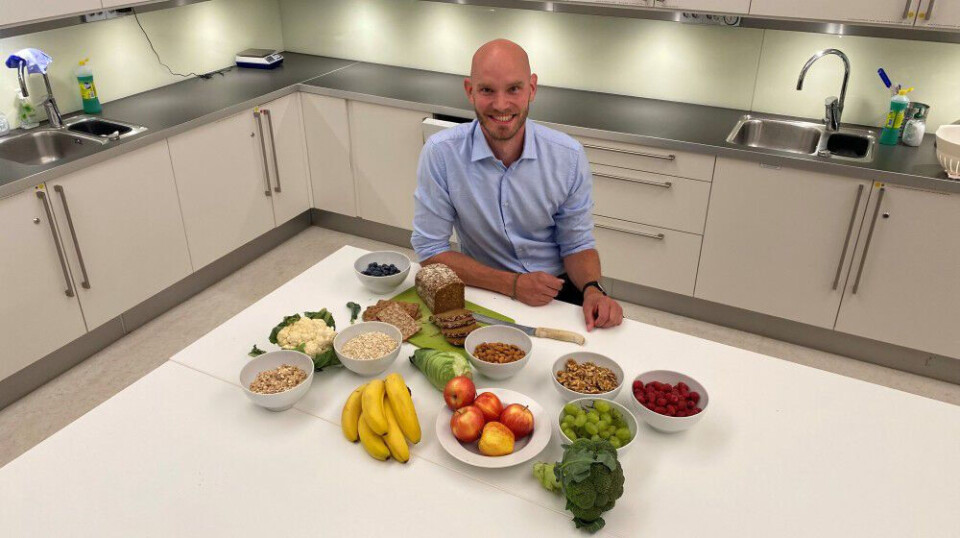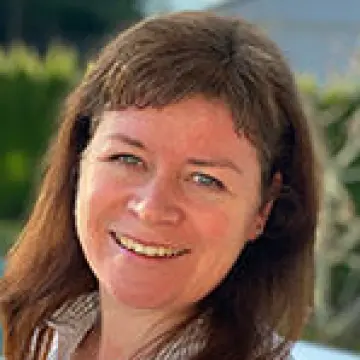THIS CONTENT IS BROUGHT TO YOU BY University of Oslo - read more
How your lifestyle affects your risk of bowel cancer
The choices you make can have a big impact.

Norway is at the top when it comes to the incidence of bowel cancer worldwide.
Previous studies have estimated that approximately half of all the cases of bowel cancer could have been avoided by not smoking, maintaining a normal body weight, eating healthily, being physically active, and drinking little or no alcohol.
But these studies have looked at lifestyle habits over a person's lifetime.
"Studies have indicated that bowel screening might be a window of opportunity to be used as a teachable moment for lifestyle intervention to try help people change their lifestyle. However, we lack knowledge about whether the risk of getting bowel cancer is reduced by a change of lifestyle at this particular point in time," says researcher Markus Dines Knudsen.
He works at the University of Oslo's Department of Nutrition.
"We therefore wanted to find out what happened if you changed your lifestyle in a positive or negative way after bowel cancer screening. We also studied the risk of developing other major chronic diseases," he says.
Participants received a score based on how healthy they lived
In a new study, the researchers used data from three large American studies. The participants included were only people who had been screened by colonoscopy.
Participants were first asked about their lifestyle and diet before they were screened. Then they were asked the same questions repeatedly in the years afterwards.
The researchers calculated a lifestyle score from 1 to 5, based on risk factors such as smoking, body mass index (BMI), physical activity, alcohol, and diet.
The questions about diet included, for example, how much red meat, processed meat, fibre, whole grain foods, dairy products, and calcium they ate.
Healthy changes really do make a difference
The researchers followed the participants for up to 30 years after their screening and recorded any diagnoses of bowel cancer or other major chronic diseases.
"It turned out that making healthy choices helps. The study showed that for every point of lifestyle improvement during the years following the screening, there was a 14 per cent lower risk of bowel cancer and an 11 per cent lower risk of developing other chronic diseases," says Knudsen.
An improvement of one point corresponds, for example, to becoming more physically active, losing weight, or drinking less alcohol.
Unhealthy habits increased the risk of bowel cancer by 70 per cent
Some participants did not improve their lifestyle, and some even lived less healthily than before. A few worsened their lifestyle score by two points or mor.
They ended up with a 70 per cent higher risk of bowel cancer and a 21 per cent higher risk of developing chronic diseases compared to those who maintained the same lifestyle score as before screening.
"These are interesting results since we're dealing with a group who actually had a reduced risk of bowel cancer because they were screened for bowel cancer and pre-cancerous conditions. In spite of this, we found that when their lifestyle worsened, they had a pronounced increase in risk of getting bowel cancer," says Knudsen.
New Norwegian study in collaboration with the Cancer Registry
Knudsen and his Norwegian colleagues are now focusing on the Norwegian bowel screening programme and want to find out whether this could be a gateway to promoting a healthy lifestyle.
They are now launching a new Norwegian study in collaboration wit the Norwegian Cancer Registry's Bowel Screening Programme.
"We will be testing different degrees of follow-up and support on cancer-preventive lifestyle habits over a two-year period. In the longer term, we will also look at how these measures affect the incidence of cancer and mortality," he says.
Reference:
Knudsen et al. 'Lifestyle Change After Initial Colonoscopy Screening and Incidence of Colorectal Cancer and Major Chronic Diseases', The American Journal of Gastroenterology, 2025. DOI: 10.14309/ajg.0000000000003686 (Abstract)

This content is paid for and presented by the University of Oslo
This content is created by the University of Oslo's communication staff, who use this platform to communicate science and share results from research with the public. The University of Oslo is one of more than 80 owners of ScienceNorway.no. Read more here.
More content from the University of Oslo:
-
Mainland Europe’s largest glacier may be halved by 2100
-
AI makes fake news more credible
-
What do our brains learn from surprises?
-
"A photograph is not automatically either true or false. It's a rhetorical device"
-
Queer opera singers: “I was too feminine, too ‘gay.’ I heard that on opera stages in both Asia and Europe”
-
Putin’s dream of the perfect family





































